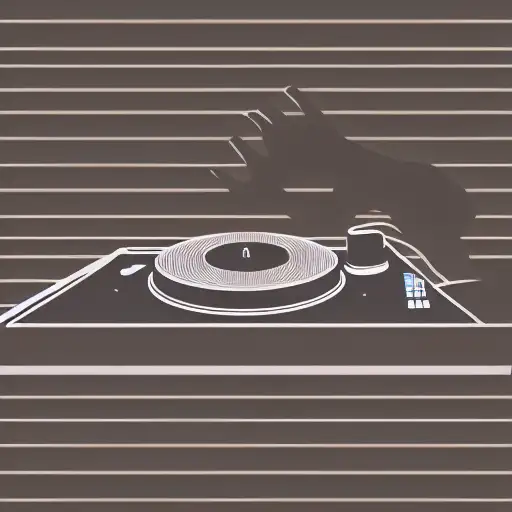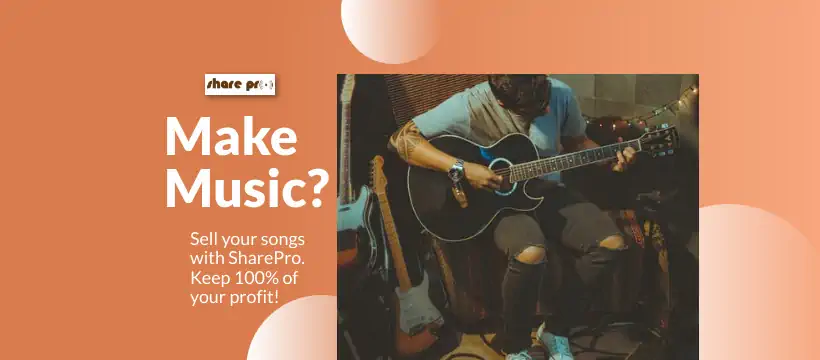How Record Sampling Changed Hip-Hop Forever
To understand how record sampling started and changed Hip Hop keep reading.
Record sampling is almost synonymous with hip-hop. From the biggest names in the game to the upcoming stars trying to squeeze in the door, everyone uses samples.
Record sampling happens when part of an existing song is taken and added to a new record. It involves taking old records and playing around till something new and usually better is produced.
Record sampling has, no doubt, heavily impacted hip-hop. To fully understand this impact, let's go back to the beginning.
History of Record Sampling
Record sampling started as far back as the 1940s, with French artists like Pierre Henry and Pierre Schaeffer. It wasn't until about thirty years later that hip-hop caught on.
In the early 1970s, DJs like Grandmaster Flash in the South Bronx area of New York were faced with a problem. They would get a crowd hyped up with a song, only for that energy to dissipate during song transitions. In a bid to fix that, Flash resorted to a quick mix theory. He would take a portion of a drum solo that matches two songs and use it as a transition so that the music never had to stop.
Grandmaster Flash and others like Kool DJ Herc were among the first to get into record sampling. About a decade later, sampling was no longer just for live parties. Artists were using samples in the records they put out. Songs like "Freedom" by Grandmaster Flash and the Famous Five, and "Rapper's Delight" by the Sugar Hill Gang changed everything for hip-hop. Sampling had come to stay.
The Sampling Effect
Record sampling instantly became a staple of hip-hop music. It thrived throughout the 1980s with groups like the Beastie Boys ditching their punk background for hip-hop and rap rock. As time passed, artists began using multiple samples in their records, making the sounds even catchier. Beastie Boys' album, "Paul's Boutique", was a masterpiece of record sampling with hundreds of samples layered throughout the album.
After taking over hip-hop, sampling spread through different genres too. RnB and pop, for example, have been heavily influenced by record sampling. Such was the spread of sampling that it became a massive issue for some artists. While some people viewed sampling as a form of art and homage to the original artist, others viewed it as theft and laziness.
Eventually, the Grand Upright Music Ltd. vs Warner Bros. Records, Inc. court case established copyright rules that restricted the use of samples. Today, artists can no longer use samples without getting permission from copyright holders. Let's get some perspective. Kendrick Lamar's album "Damn" released in 2017 has about 19 samples. Meanwhile, "Fight the Power", a song by Public Enemy released in 1989, has about 22. One song with more samples than an entire album!
Record sampling changed hip-hop, then the entire music world. Despite all the restrictions in today's music world, artists continue to find more and more creative ways of using samples to add spice to their songs. Sampling has moved beyond only using portions of other songs to using audio portions from movies and anything else the producer believes will make the record better.
Popular Examples of Sampling
You know what record sampling is, how it started, and where it is today. But everything's been theoretical up to this point. So what are some popular examples of record sampling? You might even know some of these songs without knowing there's sampling in them.
"Loyalty" by Kendrick Lamar
In his 2017 album, "Damn", Kendrick Lamar featured Rihanna in what went on to become one of the biggest hits of the year. The song, "Loyalty", was massive, eventually winning a Grammy for Best Rap/Sung Performance. It's a beautiful song, but keen listeners might have caught something most people didn't.
The beginning of the song, which sounds like a simple synth to a regular listener, is a sample from the intro to "24k Magic" by Bruno Mars. The clever disguise is that the sample was reversed and played backward instead. Impressive, huh?
"Crazy in Love" by Beyonce
In 2003, Beyonce partnered with her rapper husband, Jay Z, to produce one of the best songs of the entire 2000s. The song topped charts all over the world and won Grammys for Best RnB Song and Best Rap/Sung Performance. This song was so massive that it's one of Beyonce's most recognizable songs.
The opening of the song with its bass riffs and trumpets is all anyone needs. What you might not know is that this opening was sampled from a much older song called "Are You My Woman" by the Chi-Lites. It's another prime example of how well sampling can go.
"Stan" by Eminem
"Stan" is one of the most iconic songs of Eminem, who himself is one of the most iconic rappers of all time. In this song, Eminem tells the story of an obsessed fan who tries to contact him and grows even more obsessed when he doesn't respond. Such is the impact of the song that "Stan" is now listed in the Oxford English Dictionary as a slang term referring to obsessive fans.
It is, no doubt, one of the greatest rap songs of all time from one of the very best to do it. You've probably guessed it by now, Eminem used record sampling in the production of this masterpiece.
"Thank You" by Dido, released 2 years earlier, was Eminem's song of choice. Not many would have pegged those two to ever collaborate, but look what a masterpiece it was when they did.
Opposition to Sampling
As I already mentioned, not everyone appreciated record sampling. While many enjoyed the new and improved records with older samples, some of the original owners saw it as theft.
Howard Kaylan, a member of the Turtles, is reported to have once said, "Sampling is just a longer name for theft."
The pivotal case that came with so many restrictions to sampling happened because Gilbert O'Sullivan was opposed to rapper Biz Markie using a sample from his song, "Alone Again".
Egon, the former general manager of Stones Throw Records and founder Now Again Records, has a simple explanation: money. If everyone gets their due credit and payment, nobody minds sampling. I agree with him.
Final Thoughts
Record sampling is one of the best things that ever happened to hip-hop. Today's rules make sure the original artists get their due credit but don't take away the practice itself.
Record sampling is nowhere near as rampant as it was back in the 80s, but there can be no doubt it's one of the most impactful developments in hip-hop and all of music. Who knows what music would've looked like without it?
Blog Article Tags
record sampling sampling music sampler hip hop music producers beatmakersMore Articles
Where To Find Good Indie Music - If you're a long time fan or first time listener of Indie music, we'll show you the best methods for discovering the music you love.
How To Get Started With Music Lessons - Learn everything you need to about music lessons & how to get quickly started.
How To Write An Indie Artist Bio - If you're looking to create a compelling artist bio, we help you every step of the way.
Here's What the Indie Music Scene Is Like in Nigeria - Get an inside look at the indie music scene from a local Nigerian perspective.
Lil B - The Based God & His Impact On Indie Music - Who is Lil B? What's his impact on Hip Hop & pop culture? We let you know.



